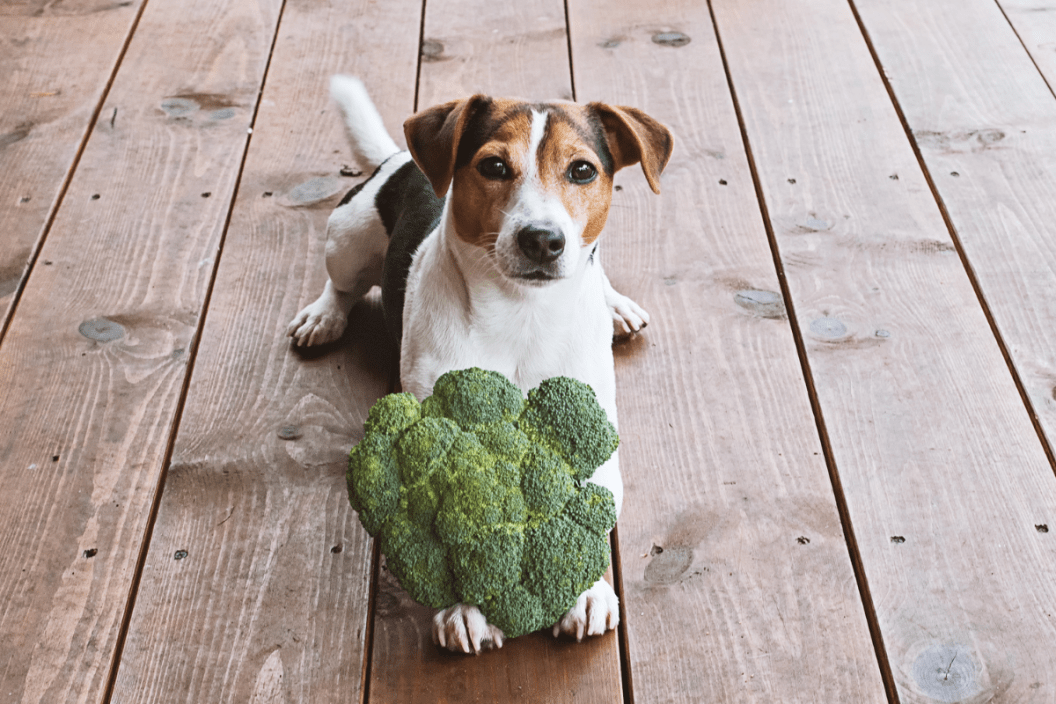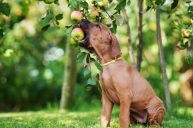Can my dog eat broccoli with their dog food?
Can dogs eat broccoli? Yes, in limited amounts. Broccoli contains nutrients that are beneficial to dogs, including vitamin K, calcium, and potassium. Vitamin K supports sturdy bones and higher bone density, and when combined with many nutritious elements, such as anti-inflammatory enzymes and antioxidants found in broccoli, it can be a real help for your dog's immune system. Unfortunately, portion control is definitely a thing with broccoli. As with all food, broccoli should be part of a balanced diet. Broccoli, and any other human food, should not account for more than 10% of a dog's diet daily calorie intake, which varies greatly depending on your pooch's size and activity level.
What Are The Benefits of Broccoli?
https://www.instagram.com/p/BqP905bhW0h/
Dogs will eat both cooked and raw broccoli as long as no seasonings or oils are added. However, since broccoli florets contain isothiocyanates, which can cause stomach upset in dogs, this vegetable should only be given minimal amounts. While dogs should only eat small quantities of fruits and vegetables to live healthy lives, occasional veggies do make for great low calorie, tasty treats on occasion and provide some health benefits. Broccoli is high fiber, low fat, and high in vitamin C. It is healthy as a dog treat, raw or baked, as long as no seasonings are added.
Can Broccoli Be Dangerous?
https://www.instagram.com/p/COqXhIKjGNB/
The critical issue with broccoli is a naturally occurring compound called isothiocyanate, which can cause mild to moderate digestive tract irritation. Isothiocyanate can also be found in other cruciferous vegetables such as kale, cauliflower, cabbage, and Brussels sprouts, but broccoli is exceptionally high the compound, making it a strong candidate for causing digestive issues, especially when mixed with its high fiber content. Isothiocyanate is very beneficial to plants because it protects them from insects and bacterial infection. This compound also contributes to the distinct flavor of these foods.
Isothiocyanate is safe in small amounts, but if a dog consumes more than 10% of its calories from broccoli, it can cause digestive system irritation. The real danger begins when a dog ingests a significant amount of broccoli, or about 25% of his daily calories. Isothiocyanate can become a lethal toxin in such high concentrations.
Broccoli stalks can also be a choking hazard, especially in small dogs. As a result, cut the broccoli into bite-sized chunks and keep an eye on your dog while he eats, particularly if you opt to feed him broccoli stems. Smaller bites also make it easier to track how much broccoli your dog eats. As with any new food, begin with a small piece of broccoli the first time to ensure your dog does not have any unpleasant reactions before feeding him more.
How To Feed Your Dog Broccoli
https://www.instagram.com/p/COsjfcHM0ME/
Start slow with broccoli to make sure your dog digests it well. Watch closely for signs of belly troubles, like gas or diarrhea. In humans, broccoli has been recommended to people who have arthritis and other inflammatory diseases. In general, it's best to opt for more dog-friendly veggies for your four-legged friend, such as spinach, seaweed, sweet potatoes, or green beans. These veggies have vitamins like magnesium, vitamin A, manganese, and beta-carotene, making them great choices in small amounts. The isothiocyanate in broccoli is dangerous for dogs in large amounts but is considered to be very healthy for people. While humans are definitely omnivores, be careful with how much of anything you feed your dog. They're built a little different!
What foods do your furry friends enjoy? Share with us on the Wide Open Pets Facebook page!




